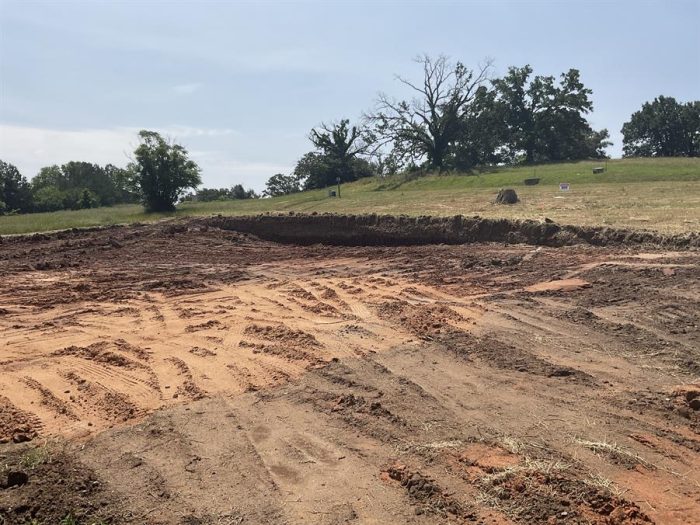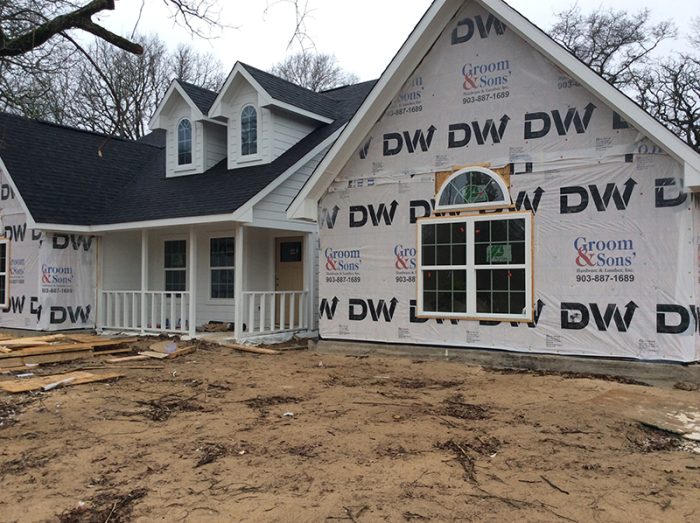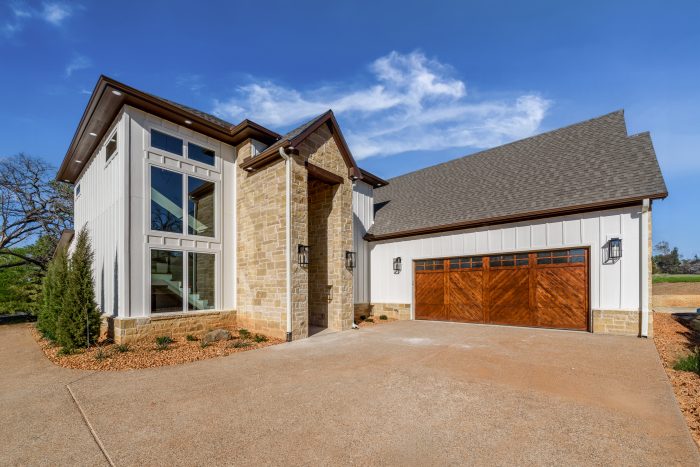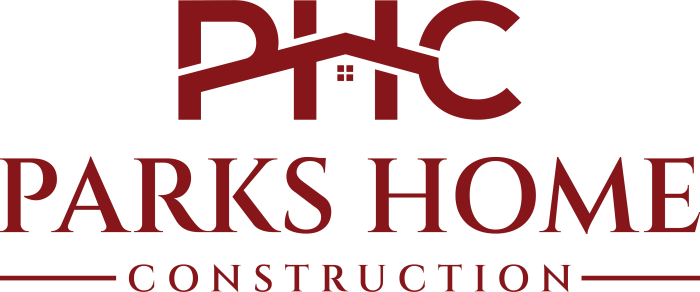Have you ever wondered, “What would it cost to build on my land?” Building on your own land is an exciting venture, but understanding the costs involved can be a bit overwhelming. Whether you’re considering working with Kaufman builders or other home builders in Kaufman, knowing what to expect financially is crucial. This project is not just about erecting a structure; it’s about crafting a space that reflects your vision, lifestyle, and aspirations. In this article, we’ll break down the major costs associated with building on your land, providing you with a comprehensive guide to make informed decisions. With a clear understanding of these costs, you can approach your project with confidence, ensuring that your dream home doesn’t turn into a financial nightmare.

The first step in building on your land involves preparing the site for construction. This phase includes several tasks that are vital for the stability and safety of your future home. Proper preparation is the foundation upon which the success of your project rests, influencing both the timeline and total cost. Here are some key aspects to consider:
Clearing and Grading
Before any construction can begin, your land needs to be cleared of trees, rocks, and debris. Grading may also be necessary to ensure the land is level. These tasks are essential to lay a solid foundation and can cost anywhere from a few hundred to several thousand dollars, depending on the size and condition of your property. The extent of the clearing and grading required will depend largely on the natural state of your land. If your property is heavily wooded or situated on uneven terrain, you might face higher expenses. Additionally, local regulations may require specific environmental protections during this process, which can add to the complexity and cost.
Soil Testing
Soil testing is another crucial step that determines the suitability of the land for building. It helps identify any potential issues such as soil instability or contamination. Professional soil testing can range from $1,000 to $3,000. This testing can reveal important details about the load-bearing capacity of the soil and its drainage characteristics, which are critical for designing a stable foundation. In some cases, soil testing might reveal the need for additional preparations or reinforcements, which could influence both design decisions and overall budget.
Permits and Fees
Obtaining the necessary permits is a legal requirement before you can start your “build on my land” journey. This process may involve fees that vary based on local regulations and the complexity of your project. It’s also wise to budget for any legal assistance you might need to navigate the permitting process. The time required to secure permits can vary, impacting your project timeline. Engaging with a knowledgeable local attorney or consultant can expedite this process by ensuring all paperwork is correctly completed and submitted, helping you avoid costly delays or legal complications.

Construction Costs
Once the land is prepared, the next major expense is the construction itself. This encompasses a wide range of costs, from labor to materials. The construction phase is where your vision begins to take tangible form, and understanding these costs can help you make informed decisions about design and materials.
Basic Construction
The basic construction cost includes the building of the structure itself, which accounts for the largest portion of your budget. On average, building costs can range from $150 to $400 per square foot, but this can vary based on the design complexity and material choices. The choice between prefabricated components and custom-built elements can also influence costs significantly. Moreover, the current market conditions, such as demand for materials and labor shortages, can impact pricing and should be monitored closely throughout the planning phase.
Custom Features and Upgrades
If you’re looking to include custom features or upgrades, such as high-end finishes, energy-efficient systems, or smart home technology, these will add to your expenses. It’s essential to discuss these options with your builder to get a clear understanding of the additional costs involved. These customizations can enhance the value and functionality of your home but require careful planning to ensure they fit within your overall budget. Consider the long-term benefits of such upgrades, like reduced energy bills or increased property value, when evaluating their costs.
Utilities and Infrastructure
Connecting your home to utilities like water, electricity, and sewage is another important cost factor. Depending on the location and accessibility of your land, these costs can vary significantly. Make sure to include these in your overall budget to avoid unexpected expenses. In rural or undeveloped areas, you might need to extend service lines or install systems like septic tanks, which can be costly. Additionally, it’s important to consider any future-proofing measures, such as installing conduits for potential solar panel connections or electric vehicle chargers.

Working with Kaufman Builders
Choosing the right builder is a critical decision in your building journey. Kaufman builders, known for their expertise in the area, can offer insights and quality assurance. The right builder will not only bring technical expertise but also provide the guidance needed to navigate the complexities of a construction project.
Builder Fees
Most builders charge a percentage of the total construction cost as their fee. This typically ranges from 10% to 20%, depending on the builder’s reputation and the project’s scope. It’s crucial to discuss and agree on these fees upfront to ensure transparency. Understanding these fees in relation to the services provided can help you assess value and avoid any surprises. Ask for detailed estimates and scope of work to ensure alignment between expectations and deliverables.
Project Management
Experienced builders like those in Kaufman will often provide project management services, coordinating different aspects of the construction process. This service can be invaluable, saving you time and ensuring the project stays on schedule and within budget. Effective project management can help mitigate risks, streamline communication, and resolve issues swiftly. This allows you to focus on the broader vision for your home while ensuring that the day-to-day operations are handled professionally and efficiently.
Warranty and Post-Construction Support
It’s important to consider the warranty and support services offered by your builder. A good warranty can provide peace of mind, covering defects and repairs for a certain period after construction is complete. Post-construction support can include inspections, maintenance tips, and even assistance with settling into your new home. Choosing a builder that offers robust post-construction support can prevent potential headaches and ensure your investment remains secure and well-maintained over the years.
Financing Your Build
Understanding your financing options is key to managing the costs of building on your land. Here’s what you need to know:
Construction Loans
A construction loan is a short-term loan specifically designed to cover the costs of building a home. These loans typically have higher interest rates but can be converted into a mortgage once the construction is complete. Understanding the terms and conditions of construction loans is critical, as they often require more documentation and have different disbursement schedules than traditional mortgages. Working with a financial advisor or lender who specializes in construction loans can provide clarity and help secure favorable terms. There are a variety of options for you “Build On My Land” project.
Budgeting for Contingencies
It’s wise to budget for unforeseen expenses that can arise during construction. Setting aside 10% to 15% of your total budget for contingencies can help you manage any unexpected costs without derailing your project. These contingencies can cover a range of potential issues, from minor design changes to more significant structural adjustments required by unforeseen site conditions. Proper contingency planning can also provide peace of mind, allowing you to navigate the construction process with greater confidence and flexibility.
Conclusion
Building on your land involves various costs, from land preparation to construction and beyond. By understanding these expenses and working with reputable builders like Kaufman, you can embark on your building journey with confidence. Be sure to plan carefully, budget wisely, and choose the right partners to ensure a smooth and successful project. Taking the time to research and prepare will set the foundation for a home that meets your needs and stands the test of time.
Remember, every build is unique, and costs can vary based on numerous factors. Always consult with professionals to get accurate estimates tailored to your specific needs and goals. With the right preparation and knowledge, you’ll be well on your way to creating the home of your dreams. Engage in open communication with your team and remain flexible to adapt to changes, ensuring a rewarding and satisfying construction experience.
Categorised in: Uncategorized
This post was written by jparksadmin
